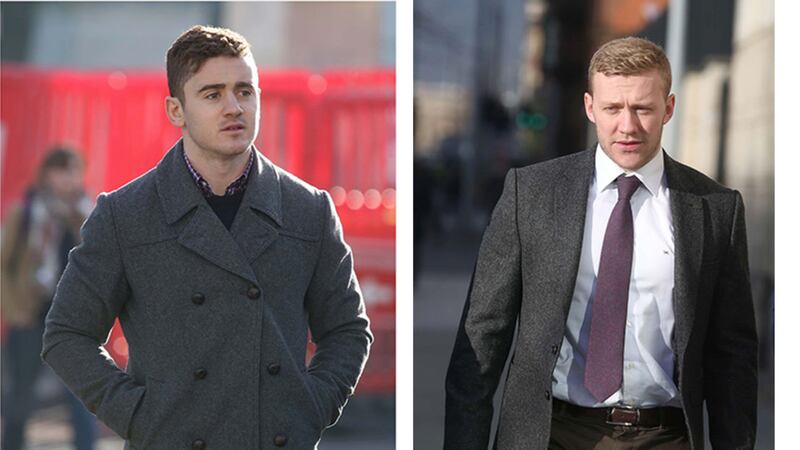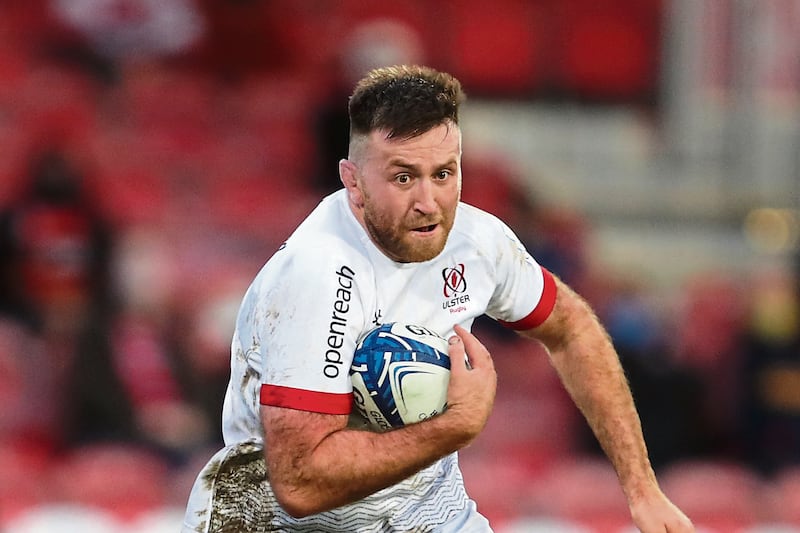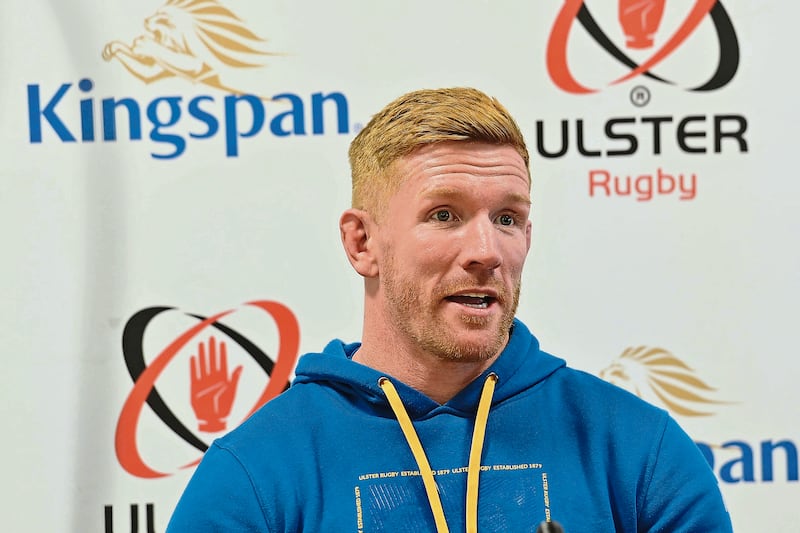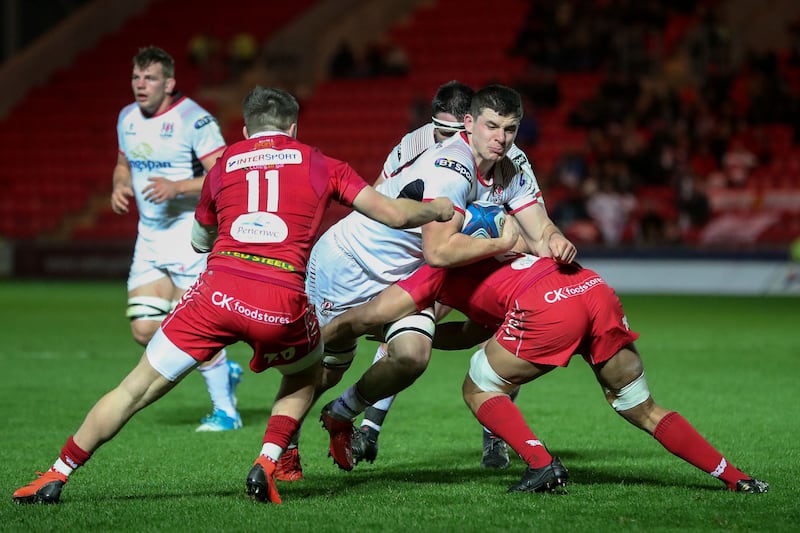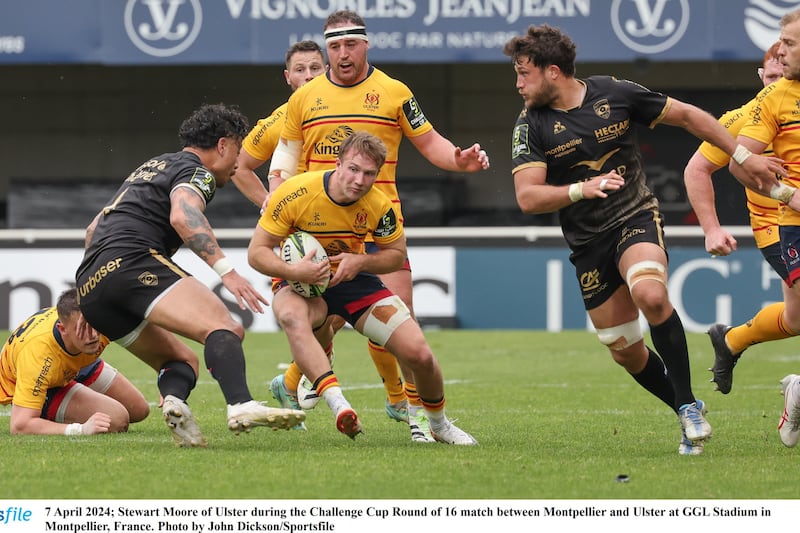Most victims of sexual assault allow the attack to happen, a forensic medical expert has told the rape trial of two Irish rugby players.
The doctor, who has extensive experience of dealing with the victims of sexual assault, was asked by a prosecution barrister whether the majority resisted.
She told Belfast Crown Court: "No, I think the evidence is overwhelming that it is allowed to happen."
She was called to give evidence by the defence team for Ulster and Ireland fly half Paddy Jackson.
She questioned the findings of a doctor who had identified a tear in the vaginal wall of the complainant during an intimate medical examination hours after the alleged attack in June 2016.
She viewed a DVD recording of the examination, the court heard.
She said: "The video does not show me where the laceration was. It just showed me a pool of blood."
However, she noted that lighting in the recording had been of poor quality.
She said there were four areas of the vagina that were commonly injured during a sexual assault.
Vaginal wall injuries were not common, she added.
"Dr (Philip) Lavery makes no mention of these in his report and that's an omission, in my view," she said.
She later added: "Any injury can occur but vaginal wall injury is not common."
Quizzed by Jackson's defence barrister Brendan Kelly QC about potential causes of internal injuries, the doctor said: "If this injury was caused by a penis which used excessive force, I would have expected the other structures to have been injured as well before the penis got into the vagina.
"If there was that amount of force it is hard to believe one injury happened inside and no injuries happened on the protecting structures outside."
The doctor also expressed confusion at the presence of a laceration that had been bleeding for 14 hours.
She said: "I would have been concerned about that quantity of bleeding persisting from an injury. Injuries heal quite quickly in this area."
Jackson ( 26) from Oakleigh Park in Belfast, and Stuart Olding (24) from Ardenlee Street, Belfast, deny raping the woman at a party in Jackson's home on June 28 2016.
Jackson also denies a further charge of sexual assault.
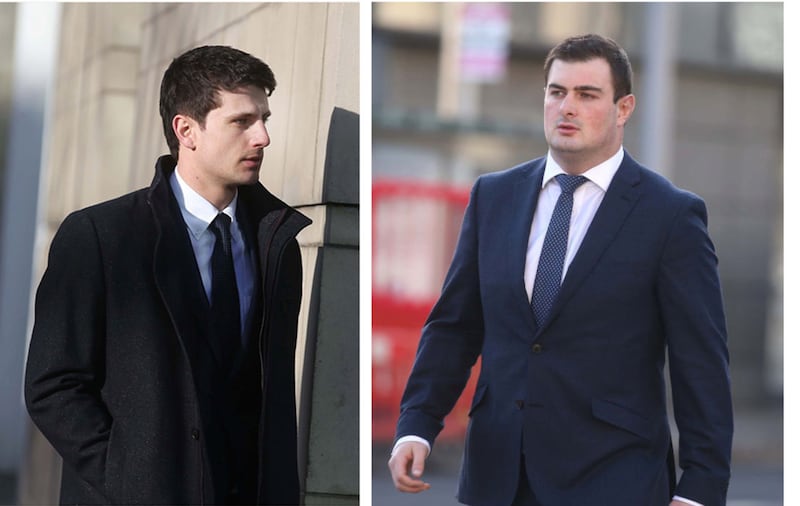
Two other men are also charged in connection with the incident. Blane McIlroy (26) from Royal Lodge Road, Ballydollaghan, Belfast, denies exposure and Rory Harrison (25) from Manse Road, Belfast, denies perverting the course of justice and withholding information.
Later defence QC Arthur Harvey for Blane McIlroy asked about the effects of alcohol on a person's behaviour. She agreed that even after stopping drinking the alcohol level in a person continues to rise.
The alleged victim in this case agreed that she had been drinking before going back to Mr Jackson's south Belfast home. The doctor accepted "yes, most certainly", Mr Harvey's contention that continued rising alcohol levels could lead, among other things, to feelings of well-being, coupled with ill-judgement, reducing inhibitation, and "makes us behave in ways we would not behave".
She further agreed "all that what happens on the way up, reverses on the way down", and could also result in fragmented memory loss and feelings of remorse in the aftermath which could lead to further problems.
However, in cross-emanination by prosecution QC Toby Hedworth, the doctor accepted that while people in drink sometimes "do things that are ill-judged ... what is sauce for the goose is sauce for the gander".
The doctor also agreed that in the aftermath of a sex assault the initial disclosure from a victim was sometimes, "partial", to which the doctor added, "and piecemeal", and that also "further details come out later".
The case continues.
